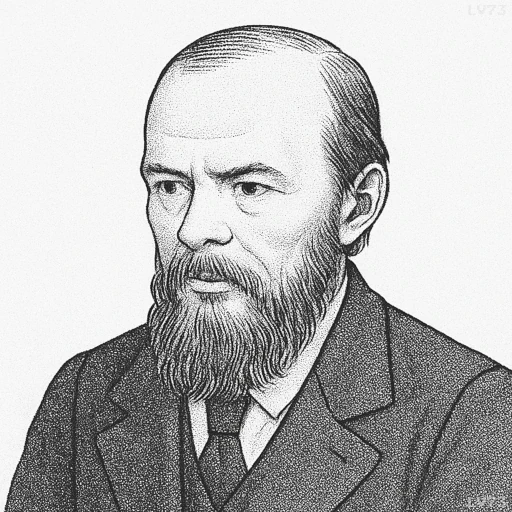“A novel is a work of poetry. In order to write it, one must have tranquility of spirit and of impression.”

- November 11, 1821 – February 9, 1881
- Born in the Russian Empire
- Novelist, philosopher
table of contents
Quote
“A novel is a work of poetry. In order to write it, one must have tranquility of spirit and of impression.”
Explanation
Dostoevsky’s statement that a novel is “a work of poetry” speaks to the deep, artistic nature of storytelling. He emphasizes that writing a novel requires more than just intellectual effort or narrative construction; it demands an inner peace and a profound sensibility toward the world. The connection between a novel and poetry suggests that, like poetry, a novel is a creative expression that taps into the emotions, mood, and imagination of the writer. The novel, for Dostoevsky, should not merely be a form of entertainment or social commentary, but rather an art form that emerges from a state of emotional and intellectual harmony—tranquility of spirit—which allows the writer to connect deeply with the human experience.
The idea that a novel requires tranquility is a reflection of Dostoevsky’s own approach to writing, which often involved deep psychological exploration and a confrontation with the darkest aspects of the human soul. Despite the heavy themes of suffering, moral conflict, and spiritual crisis in his works, Dostoevsky believed that a true writer must be inwardly balanced in order to capture the complexity of human life. Writing, in his view, was a spiritual endeavor that required not only intellectual clarity but also a serenity of heart that would allow the writer to reflect, absorb, and interpret the world in a profoundly empathetic way. This tranquility would enable the writer to convey the full range of human emotion without becoming overwhelmed by it.
In the context of modern writing, this quote underscores the importance of mental peace and emotional depth in the creative process. Writers today, amid the pressures of deadlines, external expectations, and digital distractions, may often find it difficult to cultivate the inner stillness needed to write with true depth and clarity. The idea that a writer needs tranquility—both in terms of their internal state and their external environment—remains highly relevant. Many contemporary writers, particularly those who work in genres that explore human psychology or philosophy, continue to emphasize the importance of emotional balance and self-reflection in order to create work that is not only intellectually engaging but also deeply resonant on a poetic level. Thus, Dostoevsky’s assertion serves as a timeless reminder of the artistic and spiritual nature of the novel as a form of expression.
Would you like to share your impressions or related stories about this quote in the comments section?




